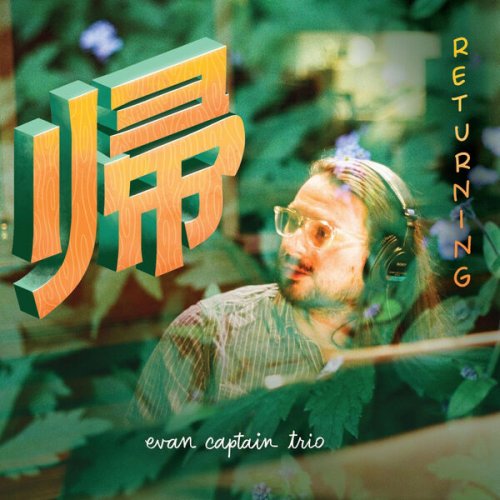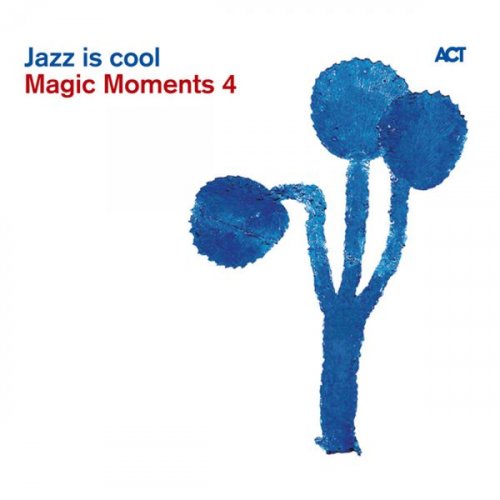Sonia Schiavone, Stefano Profeta, Fabio Gorlier, Donato Stolfi - Wayne Shorter's Legacy (2022)
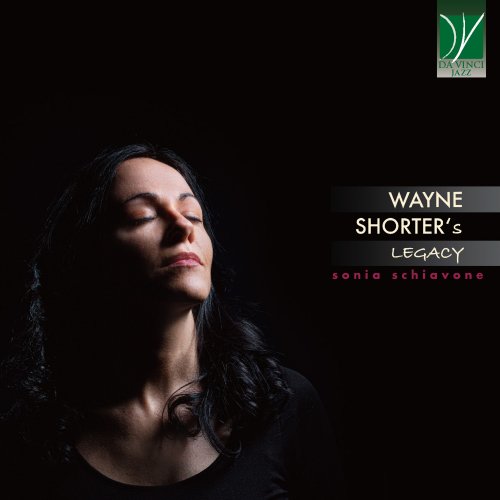
Artist: Sonia Schiavone, Stefano Profeta, Fabio Gorlier, Donato Stolfi
Title: Wayne Shorter's Legacy
Year Of Release: 2022
Label: Da Vinci Jazz
Genre: Jazz, Vocal Jazz
Quality: FLAC (tracks)
Total Time: 43:56
Total Size: 268 MB
WebSite: Album Preview
Tracklist:Title: Wayne Shorter's Legacy
Year Of Release: 2022
Label: Da Vinci Jazz
Genre: Jazz, Vocal Jazz
Quality: FLAC (tracks)
Total Time: 43:56
Total Size: 268 MB
WebSite: Album Preview
01. Deluge
02. Footprints (Follow the Footprints)
03. Yes and No (To Be or Not to Be)
04. Infant Eyes
05. Touches of Colours
06. I Sing
07. Iris
08. Speak No Evil (All for One)
09. Miyako (How Do I Love Thee)
10. Black Nile
Wayne Shorter is a leading figure of contemporary jazz. His long career is a personal stream of music, outflowing with ideas. His music fascinated me deeply since the very first hearing. The possibility of singing it gave me the enthusiasm one can feel when venturing into almost unexplored territories, which, however, one knows to be rich in treasures. It is a transforming kind of music, making one go beyond the usual, dilating one’s possibilities. As Herbie Hancock puts it, “it is a source of light”. I think that this is the most important heritage he is leaving to us.
Shorter’s compositions present themselves as a plastic material, which is, at the same time, frail and delicate. It was a pleasant challenge, for me, to arrange this material in order to bring it closer to my own personal way of feeling it. Many of his earliest compositions, written between the Fifties and the Sixties of the past century, are currently a component of every jazz student’s education. They became, in their own fashion, “standard” in the broadest meaning of the term. However, much of Shorter’s repertoire remains scarcely performed by the singers. Here I wished to propose, in a vocal style, some of his pieces written precisely in that period, interpreting texts already written by other authors (as in Speak no Evil and Black Nile), in some cases elaborating and modifying them (as in Footprints and Iris), and personally writing new ones (Infant yes, Yes and no), also for pieces hitherto not interpreted by other singers (as in Deluge and Miyako). For Yes and no I freely took inspiration from Hamlet’s hesitation in his famous monologue “To be or not to be”. The lyrics of Infant eyes are dedicated to my daughter and to my husband, whilst for Deluge and Miyako the poetics of Elizabeth Barrett Browning inspired my lyrics. This author enchanted me, and I learnt that she had been greatly appreciated by Wayne Shorter too.
Shorter’s works are small tokens of quintessential creativity, rich in elements knowledgeably combined. His writing makes me think of the synthesis and of the surprise caused by aphorisms, but also by the poetry of Emily Dickinson (to whom I paid homage in my preceding discographic work, Come – Eden! of 2020). I therefore wrote two new original pieces, Touches of colours and I sing on Dickinson’s lyrics. Here they aim to be a small homage to Shorter’s poetics and to his artistic philosophy. The former offers a new reading of the American writer’s poetry. It is an invitation to notice that light’s changes of colour in the passage between night and day lead us to see reality from many different viewpoints. A new and unsettling vision of something we had in front of us always can thus be born. I sing was written during the first Italian lockdown during the great world pandemic which is still ongoing, when I was working on the arrangements of some of the pieces which eventually became part of this CD. The words written many years ago by Emily Dickinson, who lived an atypical, voluntary lockdown for her whole life, acquired a new meaning for me. They represented an encouragement to find in art the medium for expressing myself and for “throwing darkness away”.
Sonia Schiavone
Shorter’s compositions present themselves as a plastic material, which is, at the same time, frail and delicate. It was a pleasant challenge, for me, to arrange this material in order to bring it closer to my own personal way of feeling it. Many of his earliest compositions, written between the Fifties and the Sixties of the past century, are currently a component of every jazz student’s education. They became, in their own fashion, “standard” in the broadest meaning of the term. However, much of Shorter’s repertoire remains scarcely performed by the singers. Here I wished to propose, in a vocal style, some of his pieces written precisely in that period, interpreting texts already written by other authors (as in Speak no Evil and Black Nile), in some cases elaborating and modifying them (as in Footprints and Iris), and personally writing new ones (Infant yes, Yes and no), also for pieces hitherto not interpreted by other singers (as in Deluge and Miyako). For Yes and no I freely took inspiration from Hamlet’s hesitation in his famous monologue “To be or not to be”. The lyrics of Infant eyes are dedicated to my daughter and to my husband, whilst for Deluge and Miyako the poetics of Elizabeth Barrett Browning inspired my lyrics. This author enchanted me, and I learnt that she had been greatly appreciated by Wayne Shorter too.
Shorter’s works are small tokens of quintessential creativity, rich in elements knowledgeably combined. His writing makes me think of the synthesis and of the surprise caused by aphorisms, but also by the poetry of Emily Dickinson (to whom I paid homage in my preceding discographic work, Come – Eden! of 2020). I therefore wrote two new original pieces, Touches of colours and I sing on Dickinson’s lyrics. Here they aim to be a small homage to Shorter’s poetics and to his artistic philosophy. The former offers a new reading of the American writer’s poetry. It is an invitation to notice that light’s changes of colour in the passage between night and day lead us to see reality from many different viewpoints. A new and unsettling vision of something we had in front of us always can thus be born. I sing was written during the first Italian lockdown during the great world pandemic which is still ongoing, when I was working on the arrangements of some of the pieces which eventually became part of this CD. The words written many years ago by Emily Dickinson, who lived an atypical, voluntary lockdown for her whole life, acquired a new meaning for me. They represented an encouragement to find in art the medium for expressing myself and for “throwing darkness away”.
Sonia Schiavone
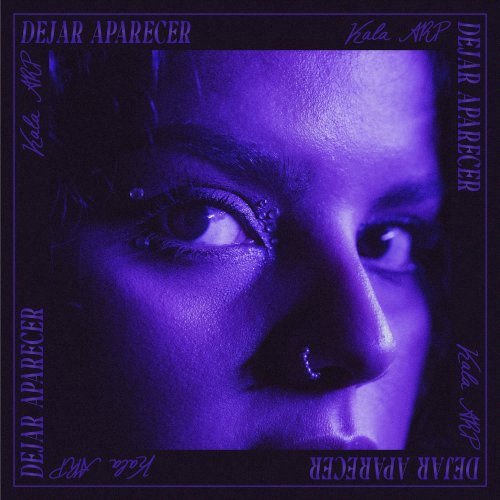
![Brandon Seabrook - Hellbent Daydream (2026) [Hi-Res] Brandon Seabrook - Hellbent Daydream (2026) [Hi-Res]](https://www.dibpic.com/uploads/posts/2026-02/1771429539_a1475136036_10.jpg)
![Marvin Birungi - Soul Vaxnation (2026) [Hi-Res] Marvin Birungi - Soul Vaxnation (2026) [Hi-Res]](https://www.dibpic.com/uploads/posts/2026-02/1771660075_500x500.jpg)
![Tom Braxton - Flashback (2026) [Hi-Res] Tom Braxton - Flashback (2026) [Hi-Res]](https://www.dibpic.com/uploads/posts/2026-02/1771426129_1.jpg)
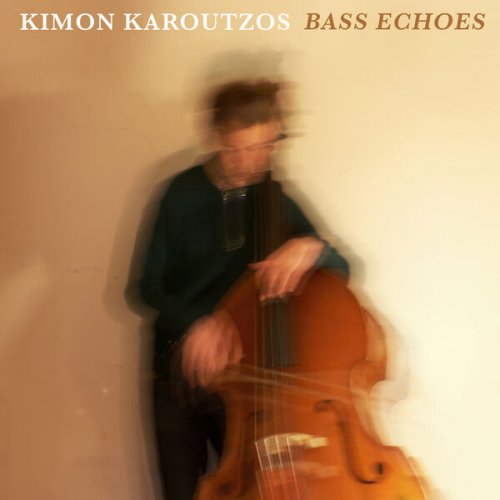
![Gonzalo Mazzutti - Lo que nos une (2026) [Hi-Res] Gonzalo Mazzutti - Lo que nos une (2026) [Hi-Res]](https://www.dibpic.com/uploads/posts/2026-02/1771563491_cover.jpg)
![Kento Tsubosaka - Lines (2026) [Hi-Res] Kento Tsubosaka - Lines (2026) [Hi-Res]](https://www.dibpic.com/uploads/posts/2026-02/1771391986_zw4gprxc9nex6_600.jpg)
